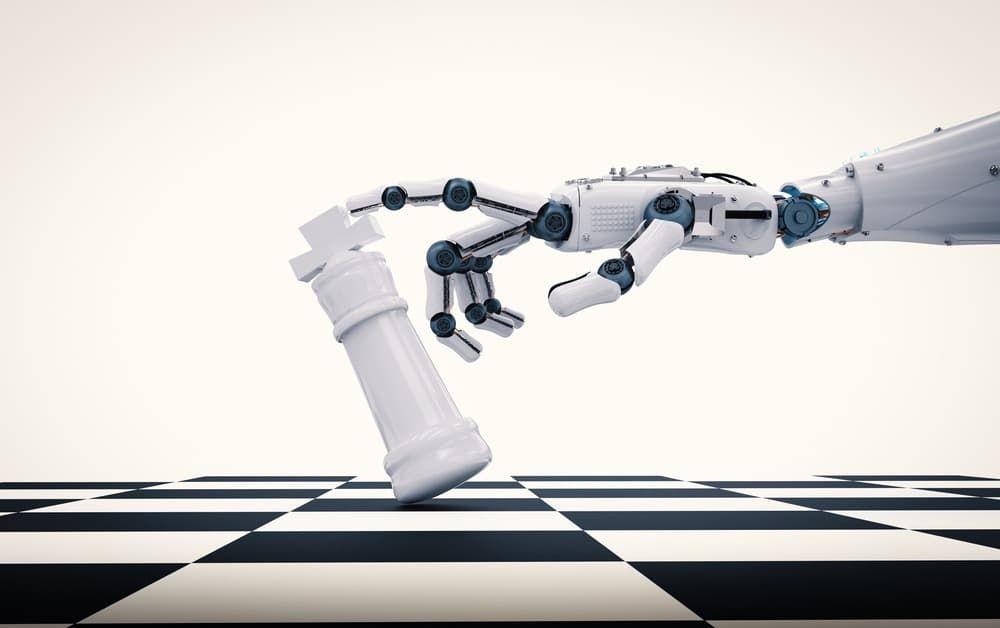Artificial intelligence eats chess computers for lunch
By Lucien Crowder | January 3, 2018

After 25 years of intermittent seriousness, I’m a mediocre tournament chess player. Grandmasters play at a level that beggars my comprehension. But grandmasters, since the second Clinton administration, have looked like clowns against chess computers.
Now AlphaZero, a digital doohickey from DeepMind—Google’s AI operation—has made a fool of Stockfish, the strongest “traditional” chess program.
Four hours after learning the rules of the game.
Granted, AlphaZero used those four hours to play against itself 44 million times, which is a lot more practice than humans ever get. That said, AlphaZero didn’t bother to learn opening theory or endgame technique. It didn’t study tactics. It didn’t analyze world championship matches. It just figured out the ancient game of chess between breakfast and lunch and then played Stockfish 100 times—winning 28 games, drawing 72, and losing none.
Stockfish loyalists claim that the match rules favored AlphaZero, and maybe they did—the machines were not given the customary opportunity to allocate time as they saw fit, but rather were given exactly one minute per move. Still, if you’re a chess program that lacks artificial intelligence, your competitive future looks dim.
AlphaZero is a “neural network, reinforcement learning algorithm.” That’s a fancy way of saying it will sacrifice its queen and declare a forced checkmate while you’re still writing your name on your scoresheet. The algorithm’s style is surprisingly aggressive and “intuitive”—perhaps more reminiscent of Paul Morphy, the “pride and sorrow” of the game’s romantic era, than of current world champion Magnus Carlsen, who plays with the personality of a cement mixer.
Yes, chess is a mere bounded game. It’s about as meaningful as a ham sandwich, and probably less complex. Still, in any realm, if an algorithm can accomplish more in a morning than humans have managed in a millennium and a half … well, I won’t join Elon Musk in warning of the AI apocalypse. But things are starting to get a little weird.
Read all about it, courtesy of Oliver Roeder at FiveThirtyEight.
Publication Name: FiveThirtyEight
To read what we're reading, click here
Together, we make the world safer.
The Bulletin elevates expert voices above the noise. But as an independent nonprofit organization, our operations depend on the support of readers like you. Help us continue to deliver quality journalism that holds leaders accountable. Your support of our work at any level is important. In return, we promise our coverage will be understandable, influential, vigilant, solution-oriented, and fair-minded. Together we can make a difference.















